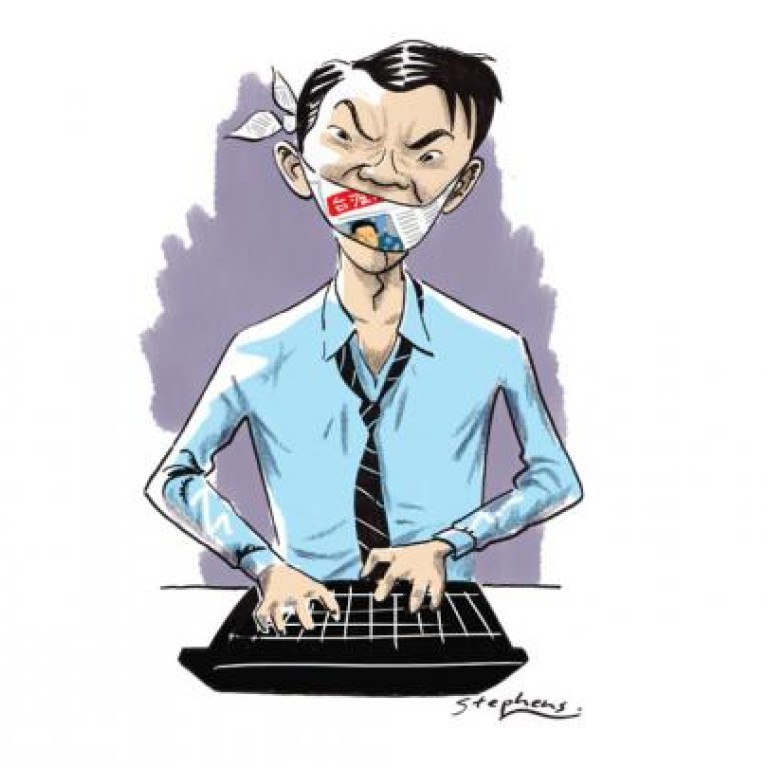
Southern Weekly row won't lead to a loosening of rules on China's media
Zhang Hong says it's clear from developments in the censorship row in Guangdong that the authorities will maintain their tight control on the media for some time to come
The crisis over censorship at continued to roil after its journalists agreed to return to work and reports emerged that Tuo Zhen, the head of Guangdong's propaganda ministry, would eventually be removed. The newspaper will print as normal this week, but editors insisted, among other terms, that a letter to readers be published to explain the incident.
has long been regarded as a symbolic publication in mainland China for its outspoken opinions and sharp criticism of the government. Many of its former reporters are now influential editors in China's major media outlets and on websites.
In spite of frequent intervention and punishment by the propaganda authorities, the publication has managed to survive, thanks to support from its millions of readers, both inside and outside the bureaucratic system.
Like most publications in China, had been under strict control this the past year, as the Communist Party prepared for its 18th congress. When the party's new leader, Xi Jinping , was sworn in last November, many liberal intellectuals hoped he might kick-start a process of long-awaited political reform, with looser media control and the fight against corruption top of the list.
However, these hopes were dashed when the Guangdong propaganda authorities ordered to change its New Year editorial from a piece calling for outright political reform and abidance with the constitution to a tribute praising the ruling party. The authorities also ordered the newspaper to drop many critical articles, or replace them with soft stories favouring the government.
Readers found at least two factual errors in the rewritten editorial, and rumours claimed Tuo rewrote the editorial himself and was responsible for the mistakes. As a result, Tuo became the primary target of the initial Sina Weibo protests, with many web users demanding his resignation.
However, the assumption of Tuo's involvement proved to be wrong, according to a report published by the reporters on Weibo, which said the editorial was actually rewritten by the newspaper's editors, under instruction from the authorities.
This is an important detail in the incident's development. If Tuo did make factual errors in drafting the editorial, editors' complaints about administrative intervention would be well grounded. Liberal forces within and outside the party could use this as a strong argument to demand the resignation of Tuo, and push for a loosening of media control by the party.
However, since Tuo is not directly responsible for the mistakes, the local propaganda authorities have a reason to fight back, as the escalating protests can be viewed as an attack against party control of the media, rather than any individual official. As direct intervention in the media is permissible by the party, propaganda authorities can even argue that such protests could undermine the rule of the party, placing hardliners on solid ground when facing internal critics. The intensive coverage by foreign media and supportive voices from outside China can be interpreted as plots by foreign powers to overthrow the party's rule.
One result of the strike is that the Guangdong propaganda ministry clearly has the upper hand as its actions are in line with party policy and will get support from the party hardliners. Any hope for direct intervention from the central government seems unrealistic.
Thus, the government will strive to achieve a swift resolution both online and offline by issuing clear warnings to those who disobey. In fact, it has already done so.
This crisis rings alarm bells for journalists and liberal intellectuals. The new government might kick-start economic reforms in certain areas, to ensure continued growth. But swift political reforms are not on the top leaders' agenda, as they are still calculating resistance from conservative blocs. The row could even be cited by conservatives as an argument against looser media control. This could be viewed as a frustrating setback for reformers.
This is a sad start for the new Chinese government. Long-awaited political reforms are just a dream that will not come true soon. The media and liberal intellectuals will find the environment for reporting and free speech as stifled as it has been in the past. With social discontent growing, more confrontations between authorities and liberal intellectuals loom.
